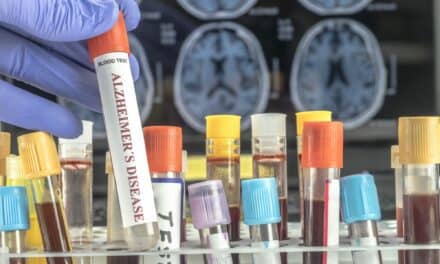Summary:
A video game test developed by Rutgers-Newark researchers may help detect Alzheimer’s years before symptoms appear, offering a non-invasive and cost-effective alternative to blood tests.
Takeaways:
- The video game test matches blood test efficacy in detecting Alzheimer’s biomarkers without requiring invasive procedures.
- It could accelerate drug trials by identifying at-risk individuals before conventional diagnosis.
- The test may become widely accessible via doctors’ offices or remote use, improving early screening options.
Alzheimer’s early detection tests using a video game test developed by Rutgers University–Newark researchers may help spot the disease years before symptoms are noticeable and provide a non-invasive form of dementia screening.
Video Game Test May Match Blood Test for Efficacy
The innovative Rutgers-Newark dementia tests match the results of a new generation of blood tests that reveal biomarkers for Alzheimer’s disease and are widely available. However, this non-invasive form of screening is painless and doesn’t require blood samples, bypassing the need for trained technicians. The video game tests could also be more cost effective for doctors, according to Rutgers-Newark researchers.
The study comes from the Aging & Brain Health Alliance at Rutgers-Newark, which focuses on the role of lifestyle and genetics in delaying Alzheimer’s. Their latest discovery could be a boon to pharmaceutical researchers since it points to a non-invasive way to choose drug trial participants who are in the earliest stages of the disease, said neuroscientist Mark Gluck, the lab’s director.
Shaving Years off Clinical Trials
That could shave years off a clinical trial timetable. Researchers would no longer have to wait for the disease to be conventionally diagnosed. Doctors now believe changes in the brain start 10 to 15 years before they produce obvious impairment.
“It’s pretty exciting for us because even before any problems with cognition become obvious, we have an early warning sign,” says lead author Miray Budak of the Center for Molecular & Behavioral Neuroscience. The study appears in the journal Alzheimer’s Research & Therapy.
Over the past 20 years, the Aging & Brain Health Alliance developed and tested the computerized video game screening to detect reduced brain function years before patients or their loved ones notice symptoms; now they have more evidence confirming that it is effective.
Gluck envisions a day when these tests can be administered at a doctor’s office on a laptop or even remotely over the internet for patients who no longer drive or lack easy access to medical care.
The video game test, called a generalization task, measures cognitive ability by showing how well a person can deduce a rule related to colors and shapes, then apply that rule to new examples.
Featured Image: A video game designed by Rutgers-Newark researchers for early detection of Alzheimer’s could provide a low-cost, non-invasive alternative to blood tests. The video tests could also boost clinical trials. Photo: Rutgers University





